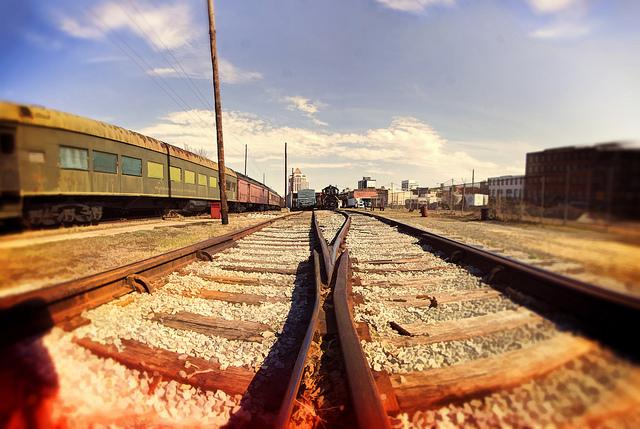The need for ‘track two’ diplomacy in Australia–Indonesia relations
Posted By Kyle Springer on July 14, 2015 @ 15:00
In early June, Australia’s ambassador to Indonesia returned to Jakarta, five weeks after being recalled following the executions of Australian citizens Andrew Chan and Myuran Sukumaran. While the embassy and its work in Indonesia continued [2] in his absence, public relations between our countries were frayed. The episode highlighted the tempestuous nature of one of Australia’s most important bilateral relationships. While we wonder what might precipitate the next trough in relations, we must keep exploring how to increase the robustness of the relationship and mitigate long-term damage, particularly public perceptions. One way might be to revisit the field of international crisis management for different tools and informal mechanisms outside of the traditional, formal spheres of statecraft to target issues in the bilateral relationship.
‘Track two’ or second-track diplomacy [3] relies on unofficial meetings, private dialogues, and public programs convened by civil society organisations like think tanks or NGOs as an alternative diplomatic pathway during times of strength and crisis. Their participants can include academics, policy makers, civil society representatives and diplomats. Unlike in official government meetings, actors in these forums are less encumbered by protocol and policy because they are speaking in an unofficial capacity. They build relationships and foster new ideas for solving problems but ultimately aim to influence the official policy process. Track-two diplomacy doesn’t undermine or supplant the work of traditional, government-to-government diplomacy. Rather, it supports official diplomacy by creating new channels for communication and placing new options on the table for debate and discussion.
In the case of Australia and Indonesia, there are many strong people-to-people connections based on genuine and earnest interactions. Australian doctors assisted in Aceh after the 26 December tsunami in 2004. Indonesian students attend Australian universities, and their alumni include former Cabinet ministers [4] and a vice president [5]. There are many joint partnerships linking Indonesians and Australians through Bali’s tourism industry. Many of these individuals go on to be influential business leaders, academics, and policymakers in their respective countries. Apart from the strength of some defence alumni programs such as IKAHAN, what hasn’t been undertaken is a comprehensive effort to regularly convene those individuals in a track-two setting that can continue to meet even when official ties are suspended. They would meet for two purposes: one, to create an open channel of communication during a crisis; and two, to serve as a forum for these individuals to push a new vision for Indonesia–Australia relations. Civil society organisations, including universities, think tanks and community groups, in both countries are best situated to take this on a ‘second track of diplomacy.’
Such diplomacy isn’t without precedent. At its best, track two approaches have helped countries in crises move away from the brink of conflict. In the aftermath of incidents like the accidental bombing of the Chinese embassy in Belgrade in 1998 by a US-led NATO air campaign and the Hainan incident in 2001, foreign policy think tanks and institutes [6] brought together American and Chinese defence officials in an unofficial capacity to discuss measures to de-escalate tensions. Continued dialogues hosted by the US Naval Postgraduate School [7] and Pacific Forum CSIS [8] brought US and Chinese officials together in a track-two capacity to discuss bilateral relations between the two great powers. If it weren’t for the work of the National Committee on American Foreign Policy [9] and other institutions, multilateral dialogue with North Korea wouldn’t have been able to continue when the official Six Party Talks were suspended. Indonesia and Australia are hardly at the brink of serious conflict, but the cases above indicate how useful track-two diplomacy can be in a crisis situation. This is a needed element to foster familiarity and longevity in good Indonesia–Australia relations.
There are many institutions in Australia capable of facilitating track-two activities. Australia has a small but growing think tank community. Well-established institutions like the Australian Strategic Policy Institute (ASPI), Lowy Institute for International Policy, and the activities of the Australian National University come to mind. New institutions are being established, like the Perth USAsia Centre at the University of Western Australia and the Australia–Indonesia Centre at Monash. Griffith University and the Jakarta-based Indonesian Institute of Sciences (LIPI) work together on an academic dialogue focussed on areas of bilateral cooperation. Likewise, Indonesia has a growing democratic civil society and organisations like the Habibie Center and CSIS in Jakarta which are open to cooperation with Australian counterparts.
In the case of Indonesia and Australia, track-two initiatives will help to deliver enduring solutions to the problems that continue to divide, and unfortunately define, a troubled bilateral relationship. Along with official diplomacy, deep people-to-people ties and relationships built over many years through research cooperation, business, study, exchanges, and international programs can help manage future crises.
Article printed from The Strategist: https://aspistrategist.ru
URL to article: /the-need-for-track-two-diplomacy-in-australia-indonesia-relations/
URLs in this post:
[1] Image: https://aspistrategist.ru/wp-content/uploads/2015/07/11809424333_59e5f0e944_z.jpg
[2] continued: http://www.smh.com.au/federal-politics/political-news/bali-nine-executions-canberra-and-jakartas-diplomatic-relations-on-hold-20150429-1mwaby.html
[3] ‘Track two’ or second-track diplomacy: http://glossary.usip.org/resource/tracks-diplomacy
[4] Cabinet ministers: http://asiapacific.anu.edu.au/blogs/indonesiaproject/?p=745
[5] vice president: http://www.news.uwa.edu.au/201103113370/alumni/indonesias-vice-president-returns-uwa-prestigious-award
[6] think tanks and institutes: http://foreignpolicy.com/2011/06/20/track-ii-diplomacy-a-short-history/
[7] Postgraduate School: http://www.nps.edu/academics/centers/ccc/news/twomeyAug08.html
[8] Pacific Forum CSIS: http://csis.org/programs/international-security-program/asia-division/us-china-strategic-dialogue
[9] National Committee on American Foreign Policy: https://www.ncafp.org/projects/by-region/asia/
Click here to print.
